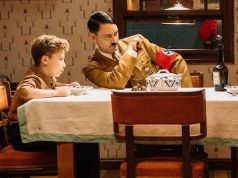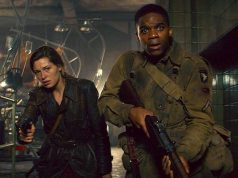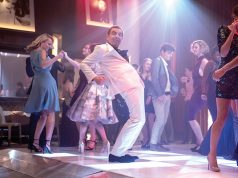It’s rare that using the protagonist’s name for the movie’s title is the best choice. Usually, it just seems like a cop-out, like you were too lazy to come up with a title that actually describes the movie. With “Charlotte Gray,” however, it works perfectly. The movie is as detached and unmemorable as its title. What does the title tell you? Nothing. What does the movie tell you? Nothing.
It is, alas, very well-acted, by Cate Blanchett in the title role first and foremost, but among the supporting roles, too. Charlotte is a Scottish woman who speaks perfect French and works in London during World War II. She meets and falls in love with a polite soldier named Peter (Rupert Penry-Jones), and she is devastated to learn, a few weeks later, that his plane has gone down over France.
Eager to help the war effort as well as to find her sweetheart, she volunteers to join the Resistance. She’s given a secret identity and a job as a courier for the good guys, then parachuted into France. She meets Julien (Billy Crudup), an idealistic communist, and lives with Julien’s gruff father (Michael Gambon). She also comes to be acting nanny for two Jewish children whose parents have been sent to the camps.
In the midst of all this, she occasionally looks for Peter, though considering how pivotal that point was in getting her to France, it’s strange how little attention is paid to it once she’s there. Instead, she helps Julien with various missions and tries to convince the Jewish kids that their parents are still alive.
As mentioned, the acting is fluent on all sides. The director, Gillian Armstrong, assembled a fine cast, and her cinematographer, Dion Beebe, does beautiful work with the pastoral French countrysides.
It is the script, then, by Jeremy Brock (based on Sebastian Faulks’ novel), that is the problem. Very little of the story is believable, but it’s told the same way that based-on-true-story war movies are. In other words, it doesn’t seem to know how ridiculous it is — a fatal flaw for such a serious movie.
There is also curiously little emotion. The movie doesn’t exactly plod, but it’s clearly in no hurry to get where it’s going, either. An hour or so in, I was unsure why I was still watching. If the film doesn’t have any sense of urgency about accomplishing its goals, why should I?
C (; )





